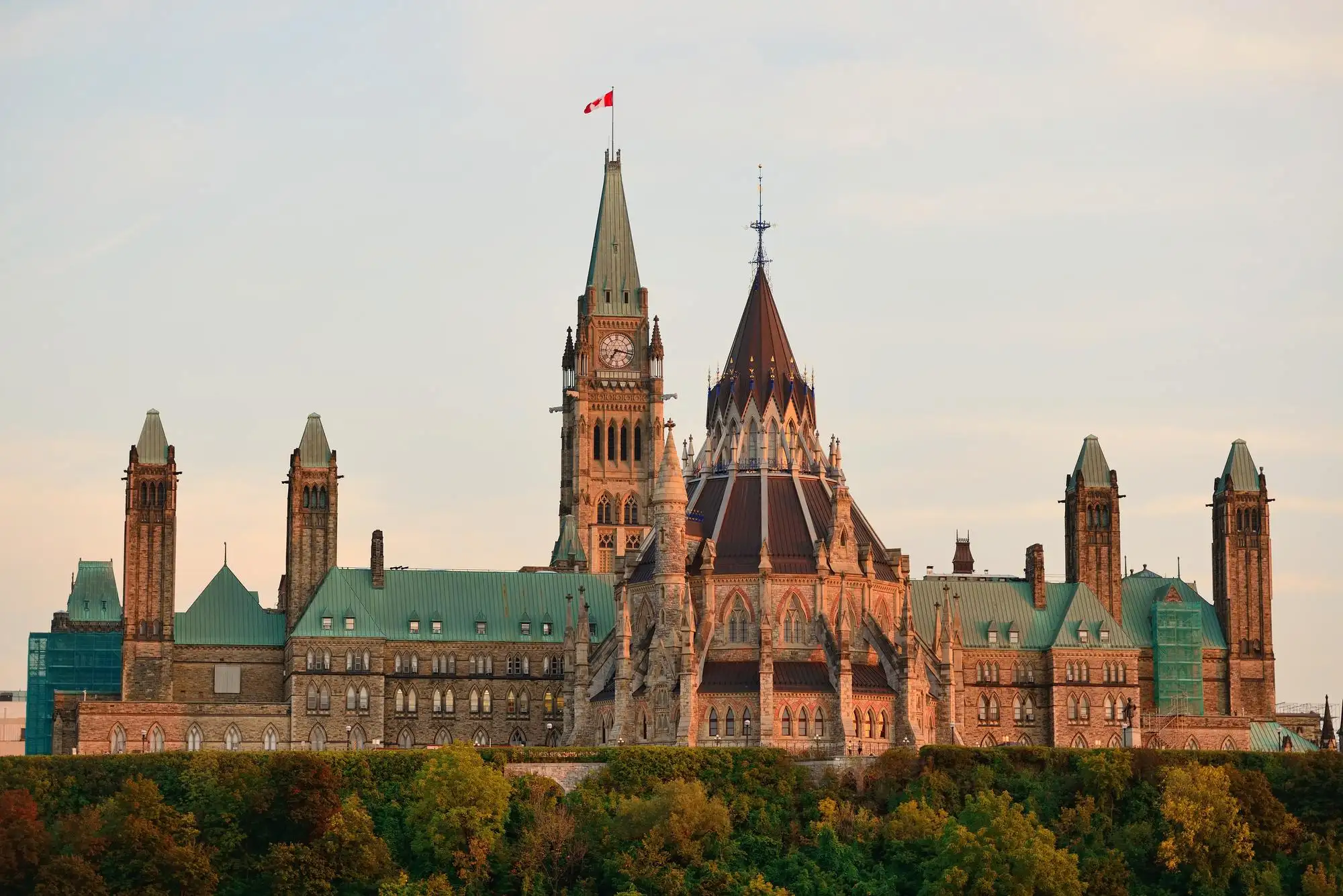The below highlights some of the tax measures proposed by the Green Party of Canada for the 2021 Canadian federal election that will be held on September 20, 2021. The purpose of the below article is to summarize and outline the different tax measures published by the political parties in their election platforms in an impartial manner. The views and measures expressed herein are those of the Green Party of Canada , they do not necessarily represent our views.
Tax Measures for Businesses
Increase the Federal Corporate Tax Rate From 15 to 21%
Increase the federal corporate tax rate from 15 to 21 per cent to bring it into line with the federal rate in the United States, our biggest trading partner. Mark Carney, former Governor of the Bank of Canada, said corporations are holding “hundreds of billions of dollars in their bank accounts,” rather than reinvesting in the economy. The Greens believe this dead money needs to be mobilized for the transition to a green, renewable economy. This will increase the tax rate in Ontario from 26.5% to 32.5%.
Extend Wage and Rent Subsidies
The Greens plan to extend wage and rent subsidies until COVID-19 pandemic-related restrictions are fully lifted.
Hold Small Business Tax Rate at 9%
Hold the small business tax rate at no more than 9%.
Eliminate the 50% Meals and Entertainment Expense Deduction
The Greens plan to eliminate the 50 per cent corporate meals and entertainment expense deduction, which they state includes season tickets and private boxes at sporting events.
Eliminate Advertising Expense Deduction on Foreign Sites Like Google
The Greens plan to prohibit Canadian businesses from deducting the cost of advertising on foreign-owned sites such as Google and Facebook which now account for 80 per cent of all spending on advertising Canada.
Support Small Local Green Business Start-Ups
Establish a federally funded Green Venture Capital Fund of $1 billion to support viable small local green business start-ups.
Raising Taxes on Environmentally Harmful Goods and Services
The Greens plan to introduce laws that incentivize green investment and the creation of green jobs (such as in sustainable transport and energy efficiency), and that disincentivize unsustainable investments (such as by raising taxes on environmentally harmful goods and services).
Tax Rebates and Waivers on Recycling Initiatives
The Greens propose to promote sustainable waste management practices, such as waste treatment, recycling, and safe handling of healthcare and biochemical waste, by adopting legislative provisions on issues including tax rebates or waivers on recycling initiatives.
Tax Internet Giants
The Greens plan to impose a corporate tax on transnational e-commerce companies doing business in Canada by requiring the foreign vendor to register, collect and remit taxes where the product or service is consumed. The e-commerce sector – giants like Netflix, Facebook, Amazon, and Google – command a significant share of the Canadian market but pay virtually no tax.
Implement a Global Minimum Tax for Multinationals
The Greens plan to work with our international partners to implement a global minimum tax so that the biggest companies in the world are not able to escape the taxes they owe here in Canada.
0.5% Financial Transactions Tax
The Greens plan to impose a financial transactions tax of 0.5 per cent in the finance sector as France has done since 2012.
5% Surtax on Bank Profits
The Greens plan to charge a five per cent surtax on commercial bank profits. The Greens say this is on the basis that Commercial banks accumulate huge profits – $43.15 billion for the five largest banks in 2018 alone.
End Offshore Tax Evasion
The Greens plan to end offshore tax evasion by taxing funds hidden in offshore havens and requiring companies to prove that their foreign affiliates are actual functioning businesses for tax purposes.
Provide Adequate Funding to the CRA
This will aid CRA to collect tax revenue hiding in offshore tax havens.
Reform Canada’s Tax System
Establish an arm’s length Federal Tax Commission to analyze the tax system for fairness and accessibility, based on the principle of progressive taxation. The last Tax Commission was in the 1960s, so reform is long overdue. This will include recommending an appropriate way to tax cryptocurrencies.
Eliminate All Fossil Fuel Subsidies
This includes payments and tax write-offs, valued at several billion dollars annually. These include the accelerated capital cost allowance on liquefied natural gas (LNG) and tax write-offs for oil and gas wells, coal mining exploration and development, flow-through share deductions for coal, oil and gas projects, and oil and gas properties.
Tax Measures for Individuals and Families
1% Wealth Tax
The Greens propose to apply a one per cent tax on net (family) wealth above $20 million.
Close Stock Options Tax Loopholes
The Greens plan to Close stock options tax loopholes that benefit the wealthy. Executives with stock options as part of their remuneration package only pay half the rate of income taxon this portion of their income.
Close Capital Gains Tax Loopholes
The Greens plan to loopholes related to capital gains which allows people and corporations to only add half of their capital gains to their taxable income, while those with only employment income pay taxes on their entire income. The Greens state that over 90 per cent of the value of this tax break goes to the richest 10 per cent, and about 85 per cent goes to the top one per cent.
Apply a Tax on Luxury Goods
This includes planes, and luxury cars.
Guaranteed Livable Income for Every Person in Canada
The Greens plan to introduce a Guaranteed Livable Income that would provide every Canadian with a basic revenue source, ensuring that people can cover basic expenses such as food and accommodation. It would be available with few or no restrictions and be enough to protect Canadians from financial catastrophes. The Guaranteed Livable Income program would cover everyone, with a benefit amount gradually decreasing as other income increases. Seniors’ and children’s benefits would remain in place.
Close Tax Havens and Loopholes
Reduce wealth inequality in Canada. Ensure that current wealth holders, particularly those in the fossil fuel sector, pay their fair share. Close tax havens and loopholes to redistribute wealth towards communities that have been underinvested in.
Wage Insurance, Retraining Programs and Early Retirement Plans.
Replace every high paying fossil fuel sector job with a high paying green sector job through wage insurance, retraining programs and early retirement plans.
Abolish Post-Secondary Education Tuition
The Greens plan to offer a free “Education For All” which is estimated to cost approximately $10.2 billion annually. They plan to finance this by redirecting existing spending on tuition tax credits, saved costs of administering the student loan system, and the hundreds of millions of dollars of student loan defaults written off every year.
Cancel All Federally Held Student Loan Debt
This will help prevent half of students who earn a bachelor’s degree in Canada from graduating with more than $28,000 in debt.
Reintroduce a Retroactive Canada Emergency Student Benefit (CESB)
The Greens plan to ensure all those eligible for the CESB receive $2,000 per month – the same amount as the Canada Recovery Benefit for the period beginning May 1, and until the pandemic is over. The Greens also propose to ensure that international and recently graduated students are eligible to receive this benefit.
Increase the Canada Training Benefit
The greens plan to expand opportunities for reskilling and retraining, by increasing the Canada Training Benefit to support continuous learning, and support for post-secondary institutions to provide new, innovative academic offerings.
Universal Child Care
The Greens plan to immediately begin to ramp up federal childcare funding to achieve the international benchmark of at least one per cent of GDP annually.
No GST on Constructing Childcare Spaces
The Greens plan to eliminate GST on all construction costs related to childcare spaces.
Caregiver Tax Credit a Refundable Tax Credit
The Greens plan to make the Caregiver Tax Credit a refundable tax credit so that family caregivers have more flexibility (from its current earned tax credit status).
Convert the Disability Tax Credit to a Refundable Credit
The Greens plan to Convert the Disability Tax Credit (DTC) to a refundable credit.
Increase the Home Accessibility Tax Credit
The Greens plan to change the Home accessibility Tax Credit from $10,000 per household to $10,000 per person for more people to age in place.
No GST on Electric Cars
Exempt new and used electric and zero-emission vehicles from federal sales tax.
No GST on Public Transport
Exempt rural and intercity public transport from sales taxes, just like urban transit.
Measures to Combat Hot Housing Market
Remove the “Deemed” GST on Change in Use
The Greens plan to remove the “deemed” GST whenever a developer with empty condo units places them on the market as rentals.
Allocate 1% of GST Revenues to Housing
The Greens plan to allocate one per cent of federal government’s revenues from GST to housing and other municipal infrastructure on an ongoing basis to provide a consistent baseline of funding.
Increase the Vacant Home Tax for Foreigners and Corporate Owners
The Greens plan to raise the “empty home” tax for foreign and corporate residential property owners who leave buildings and units vacant.
Crack Down on Foreign Investors and Money Laundering
The Greens plan close tax haven loopholes that allow foreign investors to hide the names of beneficial owners of properties in Canada. They also plan to crack down on money laundering in Canadian real estate
Tax Incentives for Building Residential Housing
The Greens plan to restore tax incentives for building purpose-built rental housing.
Tax Incentives for Gifting Land for Affordable Housing
The Greens plan to provide tax credits for gifts of lands, or of land and buildings, to community land trusts to provide affordable housing.
Reinvest in Affordable, Non-Profit, Co-Operative and Supporting Housing
The Greens plan to protect the existing stock of affordable housing by funding the purchase of buildings by non-profit and cooperative affordable housing organizations.
Re-Focus the Core Mandate of CMHC to Affordable Housing
The Greens plan to re-focus the core mandate of Canada Mortgage and Housing Corporation (CMHC) on supporting the development of affordable, non-market and cooperative housing, as opposed to its current priority of supporting Canadian lenders to de-risk investment in housing ownership. With many housing markets demonstrably overvalued, and home ownership rates among the highest in the world, individual home ownership should not be the preoccupation of a public service housing agency and a national housing strategy.
Increase Access to Housing for People with Disabilities
The Greens plan to require that housing developments that receive federal funding must ensure that 30% of all units in each development must be deeply affordable and/or available to people with disabilities and special needs.
We’re happy to help
If you have any questions about our article, please feel free to schedule a free consultation with one of our team members.


